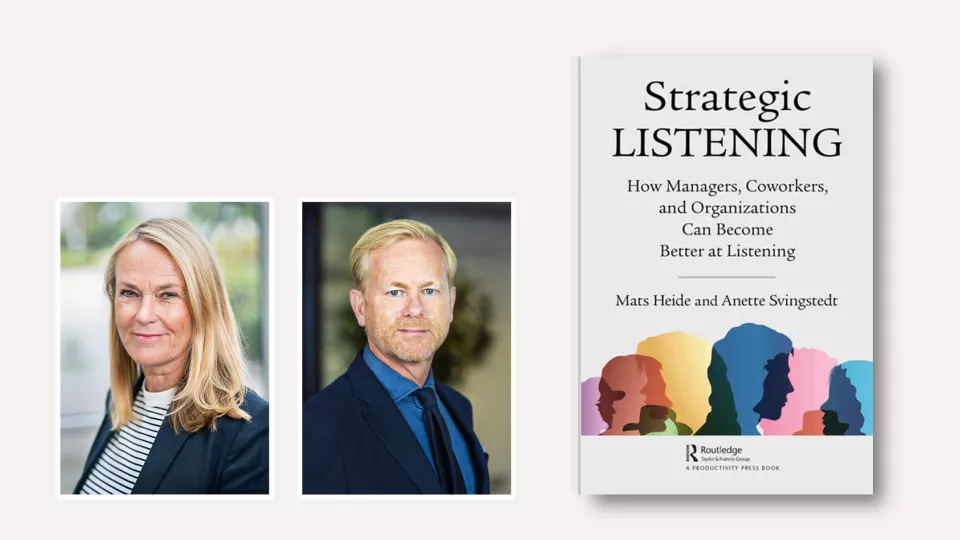Despite the positive impact of listening and the fact that organisations have more communication channels than ever, too little time is spent listening to customers, employees and other key stakeholders. How can this be?
– The simple answer is that it is difficult. But it is possible to get better at it, both as an organisation and as an employee, says Anette Svingstedt, Senior Lecturer at the Department of Service Studies at Lund University, who together with Mats Heide, Professor at the Department of Strategic Communication at Lund University, has written the book Strategic Listening – How Managers Coworkers, and Organizations Can Become Better at Listening.
The book shows that listening has many positive effects for organisations. Listening increases trust, commitment and job satisfaction.
– Organisations need to manage listening as a strategic issue in order to exploit this great potential. At the same time, managers and employees need to be made aware of the importance of listening and practice it, says Anette Svingstedt.
The book provides answers to the following:
- Why is listening important?
- What are the barriers to listening?
- How can both individuals and organizations become better at listening?
- How can organizations develop strategic listening skills?
- How does one build a system to improve an organization’s strategic listening?
About the book
Strategic Listening – How Managers Coworkers, and Organizations Can Become Better at Listening
Listening is so simple, yet so difficult. Many times, listening is taken for granted. One could therefore say that listening is the forgotten part of communication. Although organizations have more digital and analog communication channels than ever, too little time is spent listening to customers, employees, and other influential groups. It is a shame that listening is not given more attention, as it is linked to many positive values. Examples include better conversations, increased trust and confidence, more outstanding commitment and job satisfaction, lower absenteeism due to illness, higher productivity and quality of work, increased sales, better relationships with customers and employees, and many other positive effects. To the extent that listening takes place, organizations rarely take a holistic approach to it. Strategic listening means a given objective for listening, thoughts about who should listen, when it should happen, and so on. An organization’s listening must become a strategic issue to exploit the great potential of increased listening.
The book is aimed at organisations that want to strengthen the relationship between employees and managers and to external stakeholders such as customers, patients, clients or citizens. It is also suitable for courses in service research, business administration, human resources, sociology, psychology and media and communication studies.


